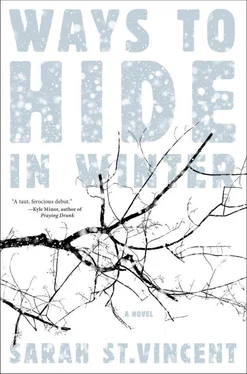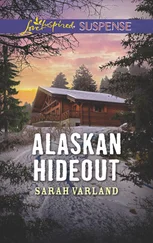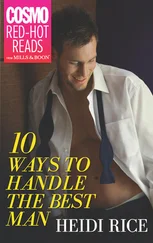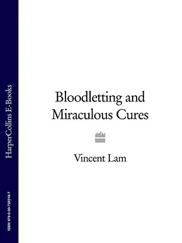“I’m sorry,” I said, putting the grocery bags on the counter. She rifled through them, ash dropping onto the floor.
“Where are the beans?”
“What?”
“I told you to get beans.” Her brows were so deeply furrowed that they seemed to meet above her nose. “And I don’t know why you didn’t tell me he was coming. Just because I’m old doesn’t mean I don’t care about my privacy anymore. Just because I’m old—”
“Yes. You’re right. I’m sorry.” I hung up my coat and moved toward the stairs.
“Where are you going?”
“Just—upstairs. I’ll be back in a minute.” I bolted upstairs with as much dignity as I could and stood in my room for a moment, facing the faded map on the wall, forcing myself to keep still. Uzbekistan, I verified, composing myself, was between Kazakhstan and Turkmenistan, west of a place called Tajikistan. It even shared a border with Afghanistan, where my brother was probably at that moment sleeping in a tent behind some nameless hill.
After a few minutes, I went into the bathroom, where I rubbed cold water on my face and made myself practice a smile in the mirror. Everything was fine, I reminded myself. Nothing had changed.
When I opened the door, I noticed, for the first time, a foreign aroma in the house, which usually smelled of smoke and dust and the cheap soap my grandmother always bought at the Dollar Store. The scent was heavy and sweet.
“I made a cake,” my grandmother announced when I returned to the kitchen and began searching for the potato peeler, bending and digging through drawers filled with rusting keys and teaspoons and can openers.
“You what?” I looked up at her.
“I said I made a cake. Pineapple upside-down. It’s on the table.” When not perturbed, she bore a marked resemblance to the Queen of England, albeit in somewhat heavier form. She had the same gray curls the queen had in tabloid photos, the same round, powdery-looking face and soft jowls. Nodding pointedly, she disappeared into the dining room and returned bearing a gooey-looking casserole dish that was much too heavy for her, the cigarette still clamped in her mouth. I took the dish from her hands and placed it on the stove, mystified.
“It smells delicious. What made you decide to do that?”
“I don’t know,” she said carelessly. “It seemed like if you were going to go to the trouble of making a ham and all…” Her voice trailed off, and she turned to peer into the now-empty bags again. “And anyway,” she added in a darker tone, “I needed something to do while your father was in here poking around and asking a bunch of stupid questions.”
“Oh.” I began covering the ham with sheets of foil. “What did he ask?”
“Just stupid things about my smoking and my lungs. I don’t see how he has any room to talk—he smokes like a chimney himself. Menthols, too. Now those things,” she said with conviction, “ those things are disgusting. Full of nasty chemicals. You’d never catch me touching that kind of”—she searched for a word—“ garbage. No, sir.”
Turning on the oven, I stifled a smile.
“And he had a bunch of questions about how we went to the hospital yesterday, but I don’t let him bully me. Just like you shouldn’t let anyone bully you.” Taking two plates from the cupboard, she fished some silverware from a drawer and walked creakily back to the dining room.
“Wait. What?” I looked after her, blinking.
“I said—”
“No, I mean, I heard you. I just wasn’t sure what you meant.” I stood facing her, holding the potatoes.
“Exactly,” she grumbled, continuing to set the table and then settling into her overstuffed chair, from which she turned on the TV and sank into silence.
After a time, I heard her turn the TV off again and shuffle across the room to the record player she’d bought at a yard sale a few years earlier. Peggy Lee began belting triumphantly, her voice sailing over the dusty furniture and into the kitchen. Peggy, my father had once told me, had been my grandmother’s brother’s favorite. He would come home in his handsome army uniform and swing my twelve-year-old grandmother around the living room while the singer celebrated in her brassy tones. Then he’d gone to the Pacific theater and come back a changed man, sitting wordless and grim and staring obsessively at his hands until, eventually, he’d been put away somewhere. At my grandmother’s wedding, he’d slumped on a pew at the back, attended by a nurse, crying inconsolably. Maybe he knew that my grandmother had married a hard man.
I put a pot of water on to boil and stooped over the trash can, working briskly with the potato peeler. The scent of roasting ham filled the kitchen, and for a moment, I wondered just how much of my day I spent standing over food, waiting for it to be ready. More of it than I cared to admit, I thought, at least when there were actually customers. It was a good thing I had the library to keep my brain from turning into paste.
Maybe Beth was right, I allowed myself to think tentatively, rubbing my forehead with the side of my hand. Maybe it was time to find a way to go back to school.
But no: even if I had the money, which I didn’t, and even if the woman currently standing over the record player didn’t need me, which she did, something about the idea made me uneasy. I wasn’t ready, I thought. That person wasn’t who I was anymore.
And anyway, I had a settled life, one I had more or less arranged to my satisfaction. Maybe it wasn’t all I had hoped, but it wasn’t bad.
An hour later, we sat at the table. Peggy had been replaced by Dean Martin. “This is good,” my grandmother said, chewing a mouthful of potatoes and meat and wiping her mouth roughly.
For the first time that day, I felt a sense of calm. “Thank you.”
She sniffed her glass of milk suspiciously before drinking. “Will you take me to Christmas Eve mass next week?”
“Sure. It’s not next week, though. It’s two weeks from now.”
She shrugged and shook a generous amount of pepper onto her potatoes, sending the black grains flying all over the table. “It doesn’t matter. Just tell me when the day comes. It’s all the same to me.”
“Okay.” We finished the meal in silence, and I cleared the plates and sliced the cake. It was like caramel on the bottom, leaving sticky droplets all over the counter.
“It’s good,” I said, returning to the table and taking a bite. Then, taking another, “Really good.”
“Well, I should hope so. It was my mother’s recipe. They made that kind of thing back then.”
“I can see why.”
“Canned pineapple,” she said. “We thought it was the greatest thing God had ever invented. That and the atom bomb. Shows you what we knew.”
“Hmm.” Absorbed in my own thoughts, I finished the slice of cake, then cut myself another, bending over it as I ate. My grandmother watched me.
“I’m not going to live very much longer, you know,” she said.
“What?” I looked at her, a forkful of cake half-raised to my mouth.
“‘What?’ ‘What?’ Is that all you know how to say?” She raised her eyes to the ceiling. “I said I’m not going to be here much longer. That’s what I told your father, but he can’t accept it.”
I stared at her, lowering my fork, unnerved. It suddenly occurred to me that there might be a reason for this dinner.
“I don’t think that’s true,” I said.
“What, that it’s going to happen or that your father can’t accept it?”
“That it’s going to happen. Not anytime soon.” A shadow of hesitation flickered across my mind, an uneasy twinge that told me I did, in fact, think it might be true. I shook my head as if to wipe the thought away. “The doctor didn’t say anything like that. Not when I was there.”
Читать дальше












